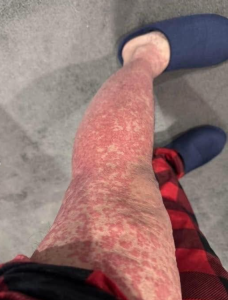Remembering the Struggles of Growing Up: When Childhood Memories Turn Uneasy 💭
Childhood is often painted in soft hues of innocence—bike rides on sun-drenched afternoons, scraped knees patched up with band-aids and kisses, warm holiday mornings filled with laughter. But for many, the canvas of those early years is more complex. Behind the photographs in family albums and the smiles in school portraits lie moments of confusion, sadness, and quiet wounds we rarely speak about. Growing up isn’t always easy. And when we begin to truly remember it, sometimes those childhood memories turn uneasy.
The Illusion of Innocence
As children, we don’t always have the words to describe our pain. We understand love, but we also feel the sting of neglect, fear, or loneliness long before we can name it. Maybe you remember a parent yelling more often than laughing. Maybe you remember being left out on the playground, watching others play while pretending you didn’t care. Or maybe you remember constantly trying to be “good enough”—for approval, for affection, for peace.
What’s difficult is that society teaches us to remember childhood as a golden time, a carefree chapter before the “real world” starts. So when the truth feels different—when we recall hurtful words, moments of abandonment, or unsafe homes—we sometimes doubt our own memories.
But uneasy memories are still valid memories. They carry the weight of lived experience, no matter how small or quiet they seemed at the time.
Silent Struggles Behind Closed Doors
For some, the struggles of childhood were invisible to the outside world. A child from a “nice” home might have battled emotional neglect, the cold distance of a parent who provided everything materially but withheld affection. Others grew up in homes touched by addiction, violence, or mental illness—places where children learned early to walk on eggshells, to stay small and unseen for safety.
Sometimes the trauma wasn’t what happened, but what didn’t. Not being hugged. Not being asked how you feel. Not being told you mattered. This absence creates invisible wounds, ones that manifest later in life as anxiety, perfectionism, trust issues, or emotional detachment.
Even those with relatively “normal” upbringings can carry scars from relentless comparison to siblings, bullying at school, or being forced to grow up too soon when life got hard for the adults around them.
The Weight of Expectations
For many, childhood was filled with pressure—to perform, to behave, to succeed. Some were expected to take care of younger siblings while still children themselves. Others were told, explicitly or not, that their worth depended on grades, obedience, or athletic achievement.
These children grew up internalizing a belief that love must be earned—that they had to do something to deserve peace or safety. And even as adults, they may still struggle to relax, to rest, or to believe they are good enough just as they are.
One of the heaviest burdens of growing up under such expectations is never truly feeling like a child. Joy is replaced with performance. Curiosity with caution. Playfulness with pressure. And years later, many look back not with nostalgia, but with grief for a childhood they never fully got to experience.
Revisiting the Past With Adult Eyes
As adults, we’re often surprised by what resurfaces. A smell, a song, a familiar street can trigger forgotten moments. And sometimes, through therapy, journaling, or even a simple conversation, a memory re-emerges—not just as a story, but as a feeling we never fully processed.
Maybe you realize the way a teacher singled you out was actually emotional abuse. Maybe your “strict” upbringing was more controlling than loving. Maybe your parent’s “bad day” behavior was, in hindsight, frightening or inappropriate. These revelations can be jarring.
Revisiting these moments with adult understanding doesn’t mean we’re trying to blame or rewrite history. It means we’re finally giving ourselves permission to tell the truth about how it felt. And that truth is essential for healing.
Finding Compassion for the Child You Were
One of the most powerful steps in emotional growth is learning to sit with the child you once were—to look at them with kindness, not judgment. You begin to see that child not as weak or dramatic, but as brave. You understand that surviving your childhood, even if it didn’t look traumatic on the surface, took strength.
You deserved gentleness. You deserved guidance. You deserved a home that felt safe and parents who saw you clearly.
And even if you didn’t get those things, the fact that you’re here now—processing, healing, learning—is a testament to your resilience.
Breaking the Silence
Talking about childhood struggles is still taboo in many families. “Don’t air our dirty laundry.” “They did their best.” “You turned out fine.” These dismissive phrases invalidate the emotional reality of growing up with unmet needs or unseen pain.
But breaking that silence is not about blame—it’s about truth. It’s about making room for honesty in our lives so that we no longer have to carry shame for the things we didn’t cause.
When we begin to share our uneasy memories with trusted friends, therapists, or even just in a journal, we reclaim our voice. We stop editing our story to make others comfortable, and instead, we allow ourselves the dignity of being heard.
Moving Forward
Healing from a difficult childhood doesn’t mean forgetting. It means understanding. It means recognizing that while we can’t change what happened, we can change how we respond to it now.
We can reparent ourselves—learning to set boundaries, give ourselves rest, speak kindly to ourselves, and choose people who respect us. We can learn to trust again, even if slowly. We can build lives that feel safe and whole.
And perhaps most importantly, we can give ourselves the childhood we never had in small, meaningful ways: buying a toy we always wanted, spending a day doing nothing but drawing or playing music, speaking gently to our inner child when they feel scared.
In the End…
Not all childhood memories are sweet. Some are filled with ache, confusion, or silence. But every part of your story matters—even the uneasy parts. Especially those.
By remembering with honesty, by grieving what we missed, and by loving the child we were, we begin to reclaim the joy, safety, and connection that every child deserves.

